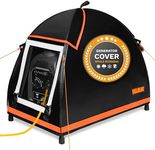Buying Guide for the Best Rvs
Choosing the right RV (Recreational Vehicle) can be a thrilling yet daunting task. The key to making the best choice is understanding your needs and how different RV specifications align with them. Whether you are planning a weekend getaway or a long-term road trip, knowing what to look for in an RV will ensure you have a comfortable and enjoyable experience. Here are some key specifications to consider when selecting an RV, along with explanations to help you navigate through them.Type of RVRVs come in various types, including motorhomes (Class A, B, and C), travel trailers, fifth wheels, and pop-up campers. The type of RV you choose will depend on your travel style, the number of people traveling, and the level of comfort you desire. Motorhomes are self-contained units with their own engines, while travel trailers and fifth wheels need to be towed by a vehicle. Pop-up campers are compact and ideal for short trips. Consider how often you plan to use the RV, the distances you will travel, and the amenities you need to determine the best type for you.
Size and LayoutThe size and layout of an RV are crucial for comfort and functionality. RVs range from small, compact units to large, spacious ones. A larger RV will offer more living space, storage, and amenities but may be harder to maneuver and park. The layout refers to the interior design and arrangement of the RV, including the placement of beds, kitchen, bathroom, and living areas. Think about the number of people who will be using the RV, their sleeping arrangements, and how you plan to use the space. A well-designed layout can make a smaller RV feel more spacious and comfortable.
Weight and Towing CapacityThe weight of the RV and your vehicle's towing capacity are important considerations, especially for travel trailers and fifth wheels. The Gross Vehicle Weight Rating (GVWR) indicates the maximum weight the RV can safely carry, including passengers, cargo, and fluids. Ensure your towing vehicle can handle the GVWR of the RV you choose. Overloading your vehicle can lead to safety issues and mechanical problems. Check your vehicle's owner's manual for its towing capacity and choose an RV that falls within that range. If you are unsure, consult with a professional to ensure a safe match.
Amenities and FeaturesRVs come with a wide range of amenities and features, from basic necessities to luxurious extras. Common amenities include kitchens, bathrooms, sleeping areas, and storage. More advanced features might include entertainment systems, outdoor kitchens, slide-outs for extra space, and solar panels. Consider what amenities are essential for your comfort and convenience. If you plan to spend a lot of time in the RV or travel for extended periods, you might prioritize features like a full kitchen, a comfortable bed, and ample storage. For shorter trips, you might be willing to compromise on some amenities.
Fuel EfficiencyFuel efficiency is an important factor, especially if you plan to travel long distances. Motorhomes, particularly larger Class A models, tend to have lower fuel efficiency compared to smaller Class B or C motorhomes and travel trailers. Diesel engines generally offer better fuel efficiency and longevity than gasoline engines but may come with higher upfront costs. Consider how far and how often you plan to travel. If you expect to cover a lot of miles, a more fuel-efficient RV can save you money in the long run. For shorter, less frequent trips, fuel efficiency might be less of a concern.
Maintenance and RepairsMaintenance and repair needs vary depending on the type and age of the RV. Motorhomes, with their integrated engines, may require more frequent and specialized maintenance compared to towable RVs. Regular maintenance includes checking and servicing the engine, tires, brakes, and other mechanical components, as well as the living area systems like plumbing and electrical. Consider the availability of service centers and the cost of maintenance when choosing an RV. Newer models may come with warranties that cover certain repairs, while older models might require more frequent upkeep. Think about your willingness and ability to perform maintenance tasks or if you prefer to rely on professional services.
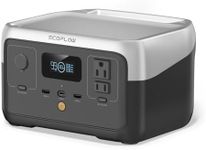
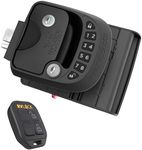
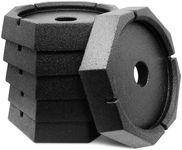
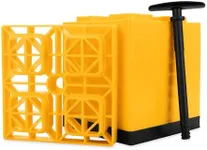

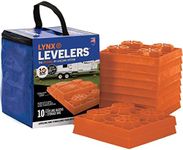
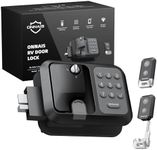

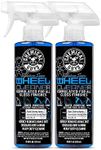



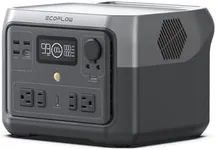
![[Upgraded Version] ALLPOWERS S2000 Portable Power Station 2000W (Peak 4000W) MPPT Solar Generator 1500Wh Backup Battery with 4 AC Outlets for Outdoor Camping RV Emergency Off-Grid](https://images-proxy.bestreviews.guide/RKciUpoEpXP6FG5NDwMBUKV-gKk=/0x150/https://m.media-amazon.com/images/I/51n9OTptdIL._AC_CX679_.jpg)

